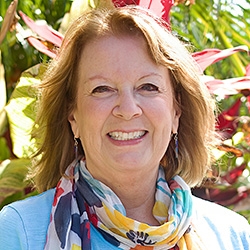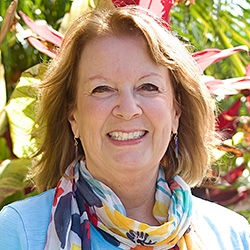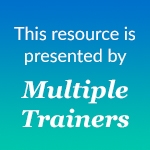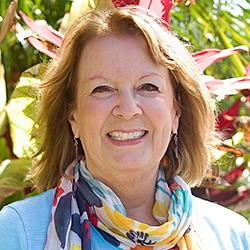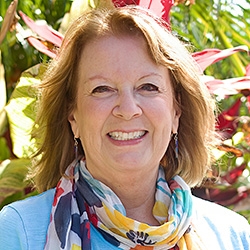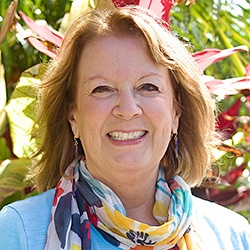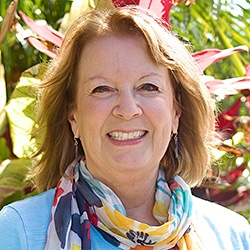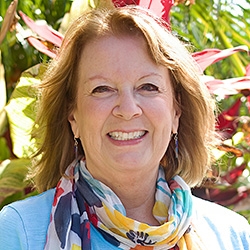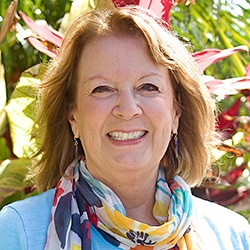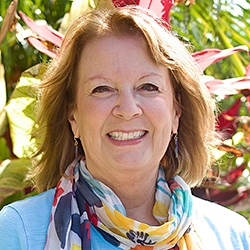

Search Results: needs
-
Trainer Tip: What does integrity mean to you? Each person has a different definition. For me, integrity means that I live in harmony with my values.
-
Trainer Tip: Next time someone asks how you're doing, you can check in with yourself and offer an honest answer. It doesn't need to be 15-minute response. You could say, "I’m feeling tired and overwhelmed by this project. I’m sure it'll work out. I’m just worried about it now. How are you?” If you're ready to do that, then you can be honest with yourself. Doing this can help you be present to how you are, and hold your experience as a gift to self and others.
-
There are ways to reduce obstacles to setting boundaries. Notice unconscious ways you sacrifice yourself in order to avoid boundary setting. List of signs that a life-serving boundary is needed, but you're denying this. Realizing you consistently abandoned your needs may require time to process and mourn before you can set boundaries consistently. With practice, you can recognize boundaries care for yourself and others.
-
-
Understand what drives children’s behavior and why their actions may feel annoying to parents.
-
Listen to this newly remastered audio with seasoned Life Coach and CNVC Certified Trainers Martha Lasley and Dian Killian, to explore how you can "be the change" in your life, to live fully in integrity with your values in your work, community, faith and social action groups.
-
Trainer Tip: The ways that we interact with our children shape the way they will interact in their world. How do your actions model compassion, tolerance, and love for your children?
-
Are you a spiritual seeker who longs for an approach that supports compassion for self as well as profound spiritual transformation? If so, you’ll enjoy this telecourse recording with Robert Gonzales and Leo Sofer as they engage in dynamic discussions about NVC as a spiritual practice.
-
Trainer Tip: Giving up on blame and taking responsibilty for our choices is immensely empowering. Mary offers a tip for growing in this direction.
-
Trainer Tip: Silent empathy can be a powerful way of contributing to someone's life, giving them the gift of our presence.
-
Along with it’s potential for helping others calm their emotions and feel deeply understood, the Nonviolent Communication process of empathetic listening can help someone increase their capacity for finding their own truth.
-
Sometimes there are moments when empathy has no effect at all on one another. Why? One reason could be that our brains maybe less receptive because of unseen forces that affect our nervous system and relationship to others...
-
Sometimes there are moments when empathy has no effect at all on one another. Why? One reason could be that our brains might be less receptive because of unseen forces that affect our nervous system and relationship with others.
-
We're more likely to sacrifice trust, connection, and relationship quality when (1.) We use NVC to focus on being seen, understood, heard, or meeting our own needs in a way that eclipses our view and understanding of others needs; (2.) We don't clearly examine our intentions; and (3.) We use the NVC form so rigidly that it becomes difficult for others to connect with us authentically.
-
Here's a practice for cultivating more awareness of our thinking and choices, when our feelings and thoughts become stimulated.
-
Trainer tip: Various life circumstances that can seem to be something that we don't want, and we may think of them as bad. And then later the situation may reveal that it's a circumstance that we do want, and we may think of it as good. Instead, of evaluating our day as good or bad we can acknowledge the feelings and needs that are present. Read on for a few anecdotes that illustrate this.
-
Trainer tip: Judging others can affect our ability to communicate effectively with that person, or enjoy the relationship. Translating the static judgments (enemy images) we have of others into our own and others' feelings and needs can help us move into greater understanding, healing, and relief -- which can foster compassion and connection. Read on for more.
-
Even in the pandemic the line between what’s essential for people and what is “essential” for fueling the economy, often gets confused. Capitalist market economies actively undermine attending to needs for the many and for life as a whole. Economic recovery is a mirage leading to continued collective oppression. This article explores possible ways to bring us closer to attending to our actual needs — and caring for self, others and life.
-
When we ask something of a person and threaten negative repercussions if she doesn’t comply, we're making a demand. Demands limit the possible responses and reduce joyful participation. Instead, look to find mutually satisfying resolutions. And look for ways to change your demand into a request. Read on for more.
-
Trainer Tip: Changing your thoughts can change the way people experience you. Just for today, see if you can notice when you have judgmental thoughts about yourself or other people. Then look to translate those thoughts into your feelings and needs. Read on for an example of how this works.

Quick Links
Subscription Preferences
Stay In Touch!
Looking for ways to keep up with NVC Academy news, get special offers, free resources, or words of inspiration? Here are five ways to stay engaged:

